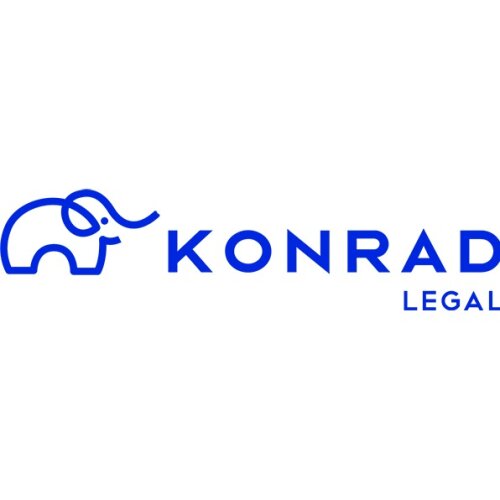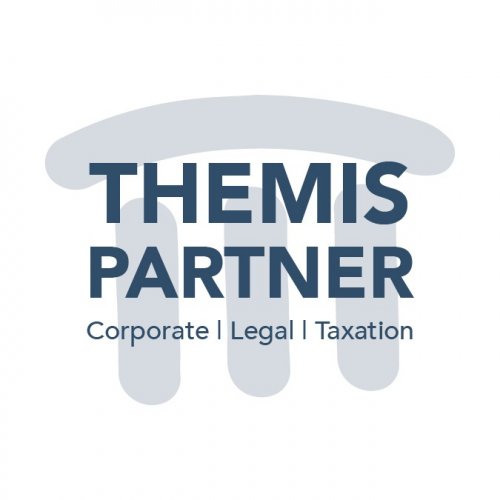Best Restructuring & Insolvency Lawyers in Bangkok
Share your needs with us, get contacted by law firms.
Free. Takes 2 min.
List of the best lawyers in Bangkok, Thailand
Legal guides written by SIAM LEGAL INTERNATIONAL:
- Defamation Laws in Thailand: Criminal Charges and Civil Suits
- The State of Thailand’s Long-Term Resident (LTR) Visa Program in 2025
- The Penalties Of Not Filing Your Income Tax Return As A Foreigner In Thailand
About Restructuring & Insolvency Law in Bangkok, Thailand
Restructuring and insolvency law in Bangkok, Thailand governs the processes that companies and individuals must follow when facing severe financial distress. In this jurisdiction, the legal framework provides various options for debtors and creditors to resolve insolvency issues, often aiming to rehabilitate businesses or fairly liquidate assets when recovery is not possible. The law ensures a balance between protecting creditors’ rights and offering struggling businesses a potential path to recovery. Given Bangkok’s status as a commercial hub, restructuring and insolvency matters are commonly encountered and closely regulated.
Why You May Need a Lawyer
There are many situations where individuals or business owners in Bangkok may need legal assistance with restructuring and insolvency matters. Common scenarios include:
- Experiencing cash flow issues and inability to pay debts as they become due
- Facing creditor actions, such as lawsuits, asset seizures, or bankruptcy petitions
- Needing advice on restructuring business operations or negotiating with creditors
- Entering the court-supervised rehabilitation process
- Handling asset liquidation or distribution among creditors
- Advising on cross border insolvency situations involving foreign parties
- Defending directors and management against liability for insolvent trading or improper conduct
- Protecting claims and recovering debts as a creditor in insolvency proceedings
A lawyer can help assess your situation, explain your legal options, ensure compliance with procedural requirements, and represent your interests throughout the process.
Local Laws Overview
Thailand’s laws on restructuring and insolvency are mainly governed by the Bankruptcy Act B.E. 2483 (1940), as amended. This statute lays out the procedures for both personal and corporate bankruptcy, as well as business rehabilitation. Key aspects include:
- Corporate Insolvency and Rehabilitation: The Act allows financially troubled companies to file for business rehabilitation, a court-supervised process designed to restructure debts and operations. Creditors may also file rehabilitation petitions.
- Bankruptcy Proceedings: If rehabilitation is not possible, companies or individuals may be declared bankrupt. This leads to liquidation of assets and distribution to creditors.
- Automatic Stay: Once a rehabilitation or bankruptcy petition is accepted, an automatic stay is usually imposed, preventing creditors from taking independent actions against the debtor’s assets.
- Creditor Participation: Creditors have rights to submit claims, attend meetings, vote on important matters, and challenge certain decisions.
- Cross Border Issues: While Thailand is not a party to major international insolvency treaties, its courts may consider foreign insolvency proceedings on a case by case basis.
- Director Liability: Company officers have specific obligations during insolvency and can be held personally liable for violations, such as wrongful trading.
These rules are applied by Thailand’s Central Bankruptcy Court, based in Bangkok, which has primary jurisdiction over full scale insolvency and rehabilitation matters.
Frequently Asked Questions
What is the difference between business rehabilitation and bankruptcy in Thailand?
Business rehabilitation focuses on reorganizing a company to return it to profitability, whereas bankruptcy results in liquidation of assets to pay creditors when recovery is not feasible.
Can creditors initiate insolvency proceedings against a debtor?
Yes, creditors can file petitions with the Bankruptcy Court if a debtor is unable to meet its debts and certain legal thresholds are met.
What happens to my assets during bankruptcy proceedings?
Upon acceptance of a bankruptcy petition, a receiver is appointed to manage and sell the debtor’s assets, with proceeds distributed among creditors according to legal priority.
What rights do creditors have in restructuring or insolvency cases?
Creditors can submit claims, attend meetings, vote on rehabilitation plans, and object to decisions. They may also challenge improper transactions or conduct.
Can a company continue to operate during the rehabilitation process?
Yes, under court supervision. An appointed planner or plan administrator takes over management during the process.
How long do insolvency proceedings typically last in Bangkok?
The duration varies depending on the complexity of the case. Rehabilitation can take several years, while bankruptcy liquidation may be shorter or longer based on asset complexity.
What are the consequences for directors of insolvent companies?
Directors may face personal liability for unlawful actions, such as trading while insolvent, or failing to cooperate with insolvency procedures.
Are there any alternatives to formal insolvency proceedings?
Yes, options include out of court negotiations and settlements, debt restructuring agreements, or informal workouts with creditors to avoid court intervention.
Can foreign creditors participate in Thai insolvency proceedings?
Yes, foreign creditors enjoy the same rights as local creditors but must comply with Thai procedural rules, including claim submission deadlines and court requirements.
Do insolvency laws apply to individuals as well as companies?
Yes, the Bankruptcy Act covers both individuals and juristic entities. However, there are differences in process and legal effects between personal and corporate insolvency.
Additional Resources
If you need further information or assistance regarding restructuring and insolvency law in Bangkok, the following organizations and governmental bodies can be helpful:
- Central Bankruptcy Court in Bangkok - the court that handles all formal insolvency matters
- Legal Execution Department, Ministry of Justice - manages asset liquidation and enforcement of court orders
- Thai Creditors’ Network - offers resources and advocacy for creditor rights
- Thai Bar Association - provides lawyer referrals, legal guidance, and educational materials
- Thai Chamber of Commerce - offers support and resources for businesses facing financial difficulties
Next Steps
If you or your business faces financial distress or is considering insolvency or restructuring in Bangkok, it is important to act quickly and seek competent legal advice.
- Assess your financial situation and gather relevant documents, such as financial statements, creditor lists, and contracts.
- Consult an experienced Thai insolvency lawyer to discuss your options and determine the best course of action.
- Understand your legal rights and obligations under local law to avoid personal liability and ensure compliance.
- If necessary, prepare to file or respond to court petitions and participate in proceedings.
- Stay informed and proactive as the situation develops, working closely with your legal advisor.
Timely professional guidance can help protect your interests, maximize recovery, and pave the way for a fresh start or business revival.
Lawzana helps you find the best lawyers and law firms in Bangkok through a curated and pre-screened list of qualified legal professionals. Our platform offers rankings and detailed profiles of attorneys and law firms, allowing you to compare based on practice areas, including Restructuring & Insolvency, experience, and client feedback.
Each profile includes a description of the firm's areas of practice, client reviews, team members and partners, year of establishment, spoken languages, office locations, contact information, social media presence, and any published articles or resources. Most firms on our platform speak English and are experienced in both local and international legal matters.
Get a quote from top-rated law firms in Bangkok, Thailand — quickly, securely, and without unnecessary hassle.
Disclaimer:
The information provided on this page is for general informational purposes only and does not constitute legal advice. While we strive to ensure the accuracy and relevance of the content, legal information may change over time, and interpretations of the law can vary. You should always consult with a qualified legal professional for advice specific to your situation.
We disclaim all liability for actions taken or not taken based on the content of this page. If you believe any information is incorrect or outdated, please contact us, and we will review and update it where appropriate.

















